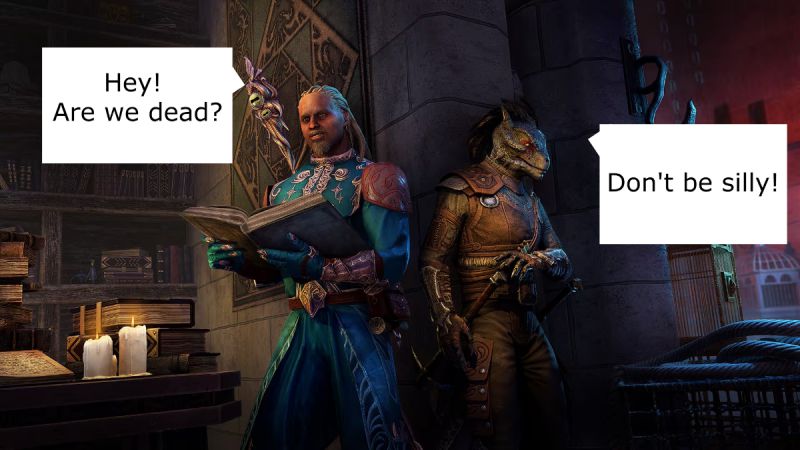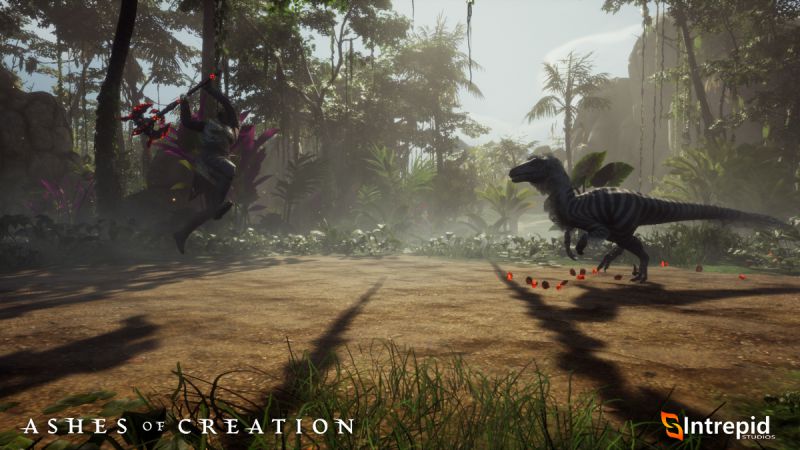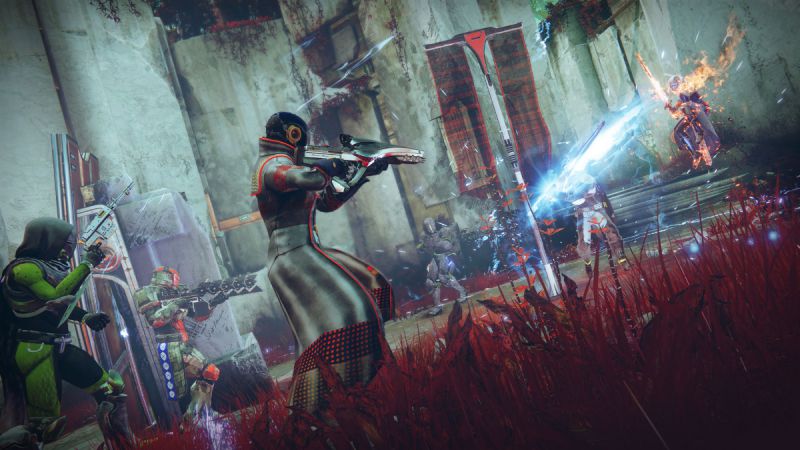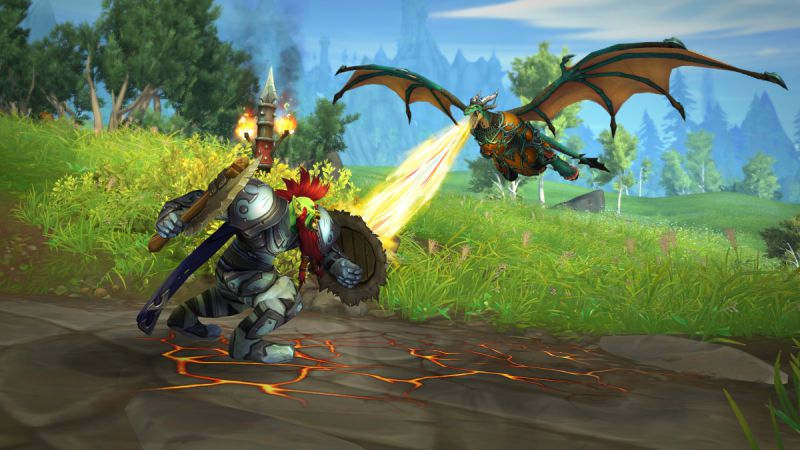No, “MMORPG” and “MMO” Games Are Not Dying
But those terms are probably dead...

In recent years, there has been a misconception that massively multiplayer online (MMO) games are a dying genre. However, this really could not be further from the truth. While it is true that the MMO genre has seen a decline in popularity, the idea that MMO games are dead is simply not accurate.
Just like every other genre in gaming, MMO and MMORPG titles evolve over time and with their audience. The inclusion of multiplayer elements in games that historically weren’t very multiplayer certainly contributes to the “dying” perception. The rise of other types of mass multiplayer games, such as MOBAs, Battle Royales, Gacha Games and even multiplayer mobile games are perfect examples. There’s only so many players (and dollars) to go around and these types of games have taken a significant portion of the gaming market, leading to a decline in the number of players and revenue for dedicated MMORPG and MMO games as we historically defined those terms. However, this does not mean that the MMO genre is dead or that MMORPG games are no longer being developed or played.

On the contrary, there are several upcoming MMOs that are highly anticipated by the gaming community. Games capitalizing on the historical agreed upon definition of “MMORPG” are eagerly awaited by many. Ashes of Creation and Pantheon: Rise of the Fallen and their rabid fanbases despite not being fully released show there’s an audience there still. These games have been in development for several years and are set to be released in the (hopefully!) near future. They have generated a lot of buzz and excitement among MMO fans, and it is likely that they will bring some new life to the MMO genre, even though their target audience is primarily existing or past MMORPG players.
Some MMO games continue to be among the top-grossing games in the industry on PC and Mobile. Large developers and publishers still getting large-scale titles into development is further proof that the genre is very profitable and worth sinking money into. Simply check out our list of upcoming MMO games and look at the heavy-hitting companies still funneling large budgets into the genre: NCSoft, Bandai Namco, Digital Extremes, Tencent, Kakao Games and more… these are big hitters in the industry and while not every title will be successful, many will end up doing quite well (provided they don’t ruin the games with ungodly monetization).
As part of the evolution of the genre, new sub-genres of games that incorporate MMO elements, such as shared-world shooter games, have also been emerging. Games like Destiny 2 and The Division have been successful in bringing MMO-like elements to shooter games, which has attracted a new audience to the MMO genre. Ask your MMO friends if Warframe or Destiny 2 is an MMO. You’ll likely get split responses. Many would say “of course not, it’s not an MMO at all” sticking to past definitions of the term. Others will look at the term through a very literal lens: Warframe is “online” and it caters to a “massive” number of “multiplayer” gamers looking for action. Sure, maybe a limited number of people are in a given match, but there are thousands upon thousands online at any given time... It's kinda like those instance-based MMOs... While I’ll leave that debate up to you (we all have our personal answer to be sure), the fact that it can be debated at all shows how the terms may mean less and less when used.
Another trend that has been observed is the shift from "massively multiplayer" to not-so-massive but still very big multiplayer online games. Instead of having thousands of players in a shared game world, which is expensive, many games are now focusing on "smaller" groups of players to create a more personalized and intimate gaming experience. This shift can be seen in the rise of multiplayer online games such as Fortnite, Roblox, GTA Online, Among Us, Fall Guys and Dead by Daylight, titles that have become extremely popular in recent years, and have attracted a wide range of players. Are they “MMO” in the historical sense some older gamers may define the term as? Probably not.

New games will challenge the traditional concept of an MMO game even more. Single-player games will get more multiplayer online features. Expect new multiplayer co-op online open-world action RPGs with a large number of players that looks and feels like an MMORPG. With advances in technology and the increasing popularity of online gaming, major developers are currently experimenting with new formats and business models, such as "Season Passes", "Marketplaces", "User-Generated Economies", "Microtransactions", and "Games as a Service", which allows (in theory) players to continue to receive new content, cash shop items, events and updates in a seamlessly connected online-only environment... much like an MMO!?
Regardless, even existing long-standing MMOs have been adapting to the changing market. Many have shifted to a free-to-play model through the years, which has helped to attract new players and increase revenue. Additionally, many MMOs have also been releasing regular content updates to keep their player base engaged, which has helped to maintain their popularity. Many players still play World of Warcraft, Runescape, Final Fantasy XIV, The Elder Scrolls Online, EVE Online and others, even though some of those MMORPGs still used the “outdated” (according to some) subscription model.

Upcoming MMOs, new sub-genres of games with MMO elements, and existing MMOs adapting to the market are all signs that the MMO genre is far from dead. As the popularity of multiplayer gaming continues to grow, it's safe to expect that more and more game developers will focus on creating multiplayer experiences. The MMO genre will continue to evolve and adapt to the changing market, and there are many exciting developments to look forward to in the future, even if that means we eventually stop using the terms “MMO” and “MMORPG” entirely.
Related Articles
About the Author

Luis Dobreira founded MMOBomb back in 2008 and has been responsible for the technical development of the website, as well as the overall operations and management of Digiwalls Media, the company behind MMOBomb. When he's not coding he's probably watching movies or playing games.
More Stories by Luis DobreiraRead Next

The popular music mixer MMO by Coca-Cola seemed to vanish overnight.
You May Enjoy

I bet some of you are shocked those weren't available already.

The first of three questlines is now available.

Female character models are getting more love, too.

This is just the first iteration of the God Builder and new features will be coming soon.
Games that can be reasonably tagged with MMO also aren't among the top grossing games, mobile games, MOBAs, and other things make the money earned by MMOs look pretty insignificant. Although for some reason, some try to tag just about any online service based games as a MMO, event single player games, with minimal multiplayer options, like Genshit Impact.